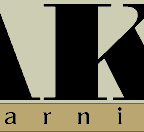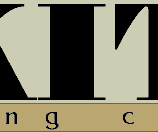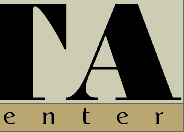 Save this page (61.7 kb)
Save this page (61.7 kb)
1935 NIPPO letter
Gentlemen:
In June 1934, we sent a copy of our regulations and bulletin to each of the leading kennel clubs in Europe and America, for purpose of establishing a friendly relation with them. In return we received a number of letters in acknowledgment and also various magazines, for which we feel very grateful. At the same time the tone of encouragement and appreciation expressed in these letters made us feel that a further knowledge on this particular breed may be welcome, and thus we have decided to send out a little more detail on our native dogs, known amongst us the "Nippo Inu". This animal is no doubt of a very ancient breed. There is every reason to believe that it has been living more or less in a similar form and shape from the days, when our forefathers occupied this island. But unfortunately, instead of preserving this ancient heritage proudly and intactly, it has become well nigh extinct through neglect and indifference during the last century or so, until a few years ago, when it found a champion in the person of Mr. Hiroshi Saito, who realizing the critical situation and the necessity of preserving this interesting and artistic specie, at once proceeded to the formation of a society.
His devotion and effort were rewarded in June 1928, when the society known as the "The Nippon Inu Hozonkai" or "The Society for the Preservation of Japanese Dogs" abbreviated N.I.H. came formally into existence. Then the next step of Mr. Saito and his friends was to call the attention of the public on the various good points of the animal, and so for their effort has been crowned with a great deal of success, for the society has now a membership of over seven hundreds, thus occupying a leading position among the kennel clubs in Japan. It has also been successful in making this breed quite popular and year by year its fanciers have been on the increase, and at the last exhibition held on November 3rd., 1934 the day on which the whole of Japan commemorate the august memory of the late Great Emperor Meiji we have witnessed, in the brilliant sunshine and in the calm and peaceful autumnal atmosphere, a happy sight of more than hundred of these creatures parading for the show.
Up to now this breed was classified into three distinct species - "Shishi Inu", "Shika Inu" and "Shiba Inu", translated into English respectively as "Boar Hound", "Deer Hound" and "Turf Dog". But we have since then discovered that this classificationon is not accurate, in fact it is misleading, for the different species are nothing more than the evolved animals not through interbreeding, but by the different usages and work they were put through. In other words, the changes are environmental. It has also been called by the names of different districts in which they were bred, such as Ainu Inu, the Akita Inu or the Kai Inu. It will be more scientific to classify them, however by the difference in sizes and call them the large, medium and small. Taking the medium sized animal as our standard, we can easily work out the guiding principles fairly accurately. "The List Of Standard Points" enclosed herewith has been the result of much painstaking study by those who are acknowledged to be the competent authorities on this special breed, and we submit it to the dog lovers of the world for their judgment.
We have noticed with great pleasure and to some extent with regret, the appearance of number of articles of late years about this breed in foreign journals. Its chief characteristics have been fairly well stated, but since there were a few misstatements on several important points, we have come to the conclusion that there may be also some wrongly formed opinion, and consequently we will endeavour to correct the latter by sending out an accurate account from time to time, which will bear somewhat of an official character. Our attention was specially drawn to an article, a little while ago, on a pathetic but beautiful story of Hachiko, which had waited daily in vain for well over ten years the home coming of his master at the Shibuya Station, testifying to the faithfulness and cleverness of this dog. This Hachiko is no other than a pure blooded "Akita Inu" and is regarded as one of the largest breeds. Further in this letter we will confine ourselves only in the points out a few misstatement of minor character, as for instance in the kennel gazette, we noticed that the Tosa Inu is called a type of pure Japanese dog, which is not quite correct. This mistake is really excusable, although unfortunately it is far from the case, since a tosa is terribly a mixed breed. However any one glancing through the photographs of the "Nippon Inu" enclosed herewith, with the help of "The List of Standard Points", will undoubtedly understand without much difficulty what we mean by it.
En passant we should also like to rectify two small errors in Hutchinson's Dog Encyclopaedia, in which Mr. H. Isogai is mentioned as a head of the movement for preservation of the "Nippon Inu", but in reality Mr. Isogai, who is a dog dealer by trade is only an ordinary albeit enthusiastic member of the society. In the same work instead of calling the Boar Hound, "Shishi Inu" it is mentioned as "Choken".
In conclusion we should like the public to know, that our society is always willing to help those, who wish either to know more about this breed or to make a purchase. Moreover we will be too glad to supply any information gratis, since it is an association formed for the sole purpose of propagating and improving our national breed.
Enclosed herewith please find the photographs of the animal, together with the list of the "The Standard Points" and also the constitution of "The Nippon Inu Hozonkai".
Yours very faithfully,
Signed
Ichiro Hata)
Hon. Foreign Secretary
NIPPON INU HOZONKAI (N.I.H.) |
Top ↑ |









